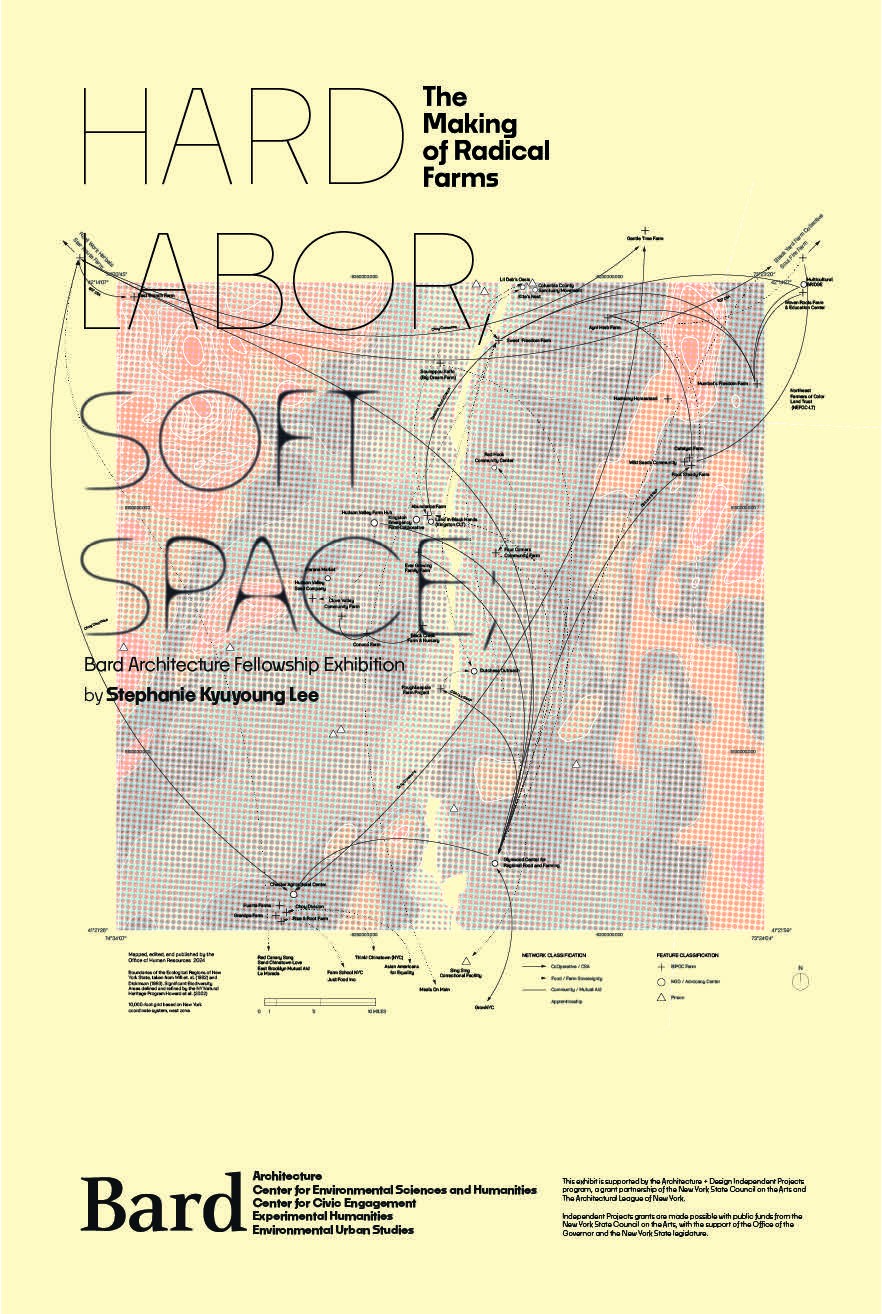Hard Labor / Soft Space
Hard Labor / Soft Space documents the current surge of collective farms and radical food systems in and around the Hudson Valley. Against the backdrop of land distribution laws such as the Homestead Act (1862) and the Alien Land Law (1913) that led to the current racial disparity in agricultural land ownership, this ongoing project reframes rurality as a site of radical reclamation. Developed as part of the Bard Architecture Fellowship Program, this design-research forms a comparative genealogy of utopian agrarian projects starting with 19th Century Abolitionist movements in the United States to the current wave of BIPOC-led radical farms in the Hudson Valley.
In 1972, sociologist Liselotte Ungers and architect Oswald Mathias Ungers published Kommunen in de Neuen Welt: 1740–1972 (Communes in the New World), based on their pilgrimage to 35 utopian communes in the U.S. This exhibit is at once homage and critique of past architectural studies on collective living strategies. Land-based projects are represented here to address the erasure of race in the history of rural ideation and explore future living strategies rooted in racial and social justice. Through counter-mapping, archiving and film, this exhibit highlights alternative agrarian settlements and renounces models of industrial farming that thrive on the extraction of labor, capital, and lands of others.
Organizer: Stephanie Kyuyoung Lee
This exhibit is supported by the Architecture + Design Independent Projects program, a grant partnership of the New York State Council on the Arts and The Architectural League of New York. Independent Projects grants are made possible with public funds from the New York State Council on the Arts with the support of the Office of the Governor and the New York State legislature.
Opening: 29.6.2024, 6 pm
